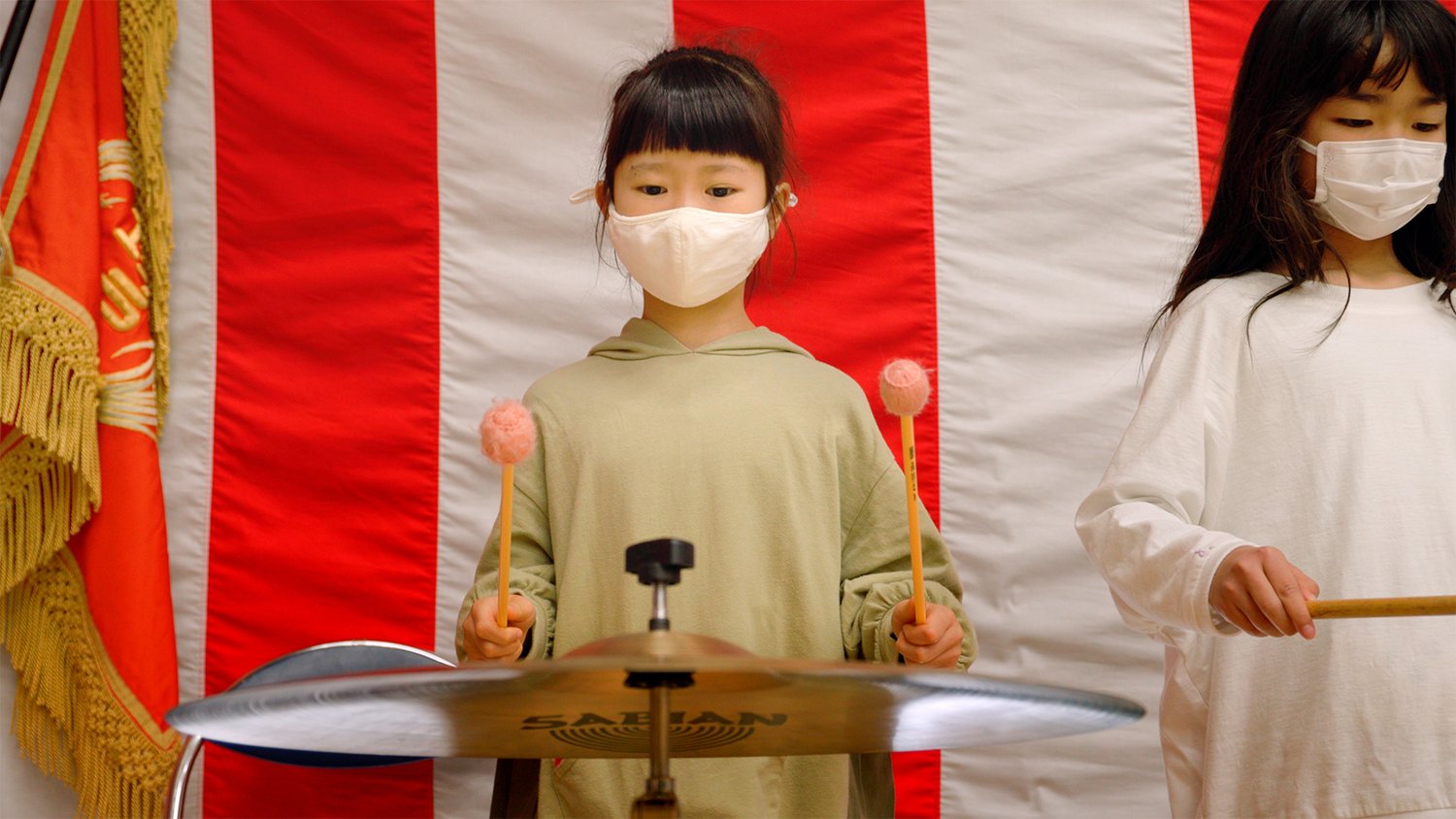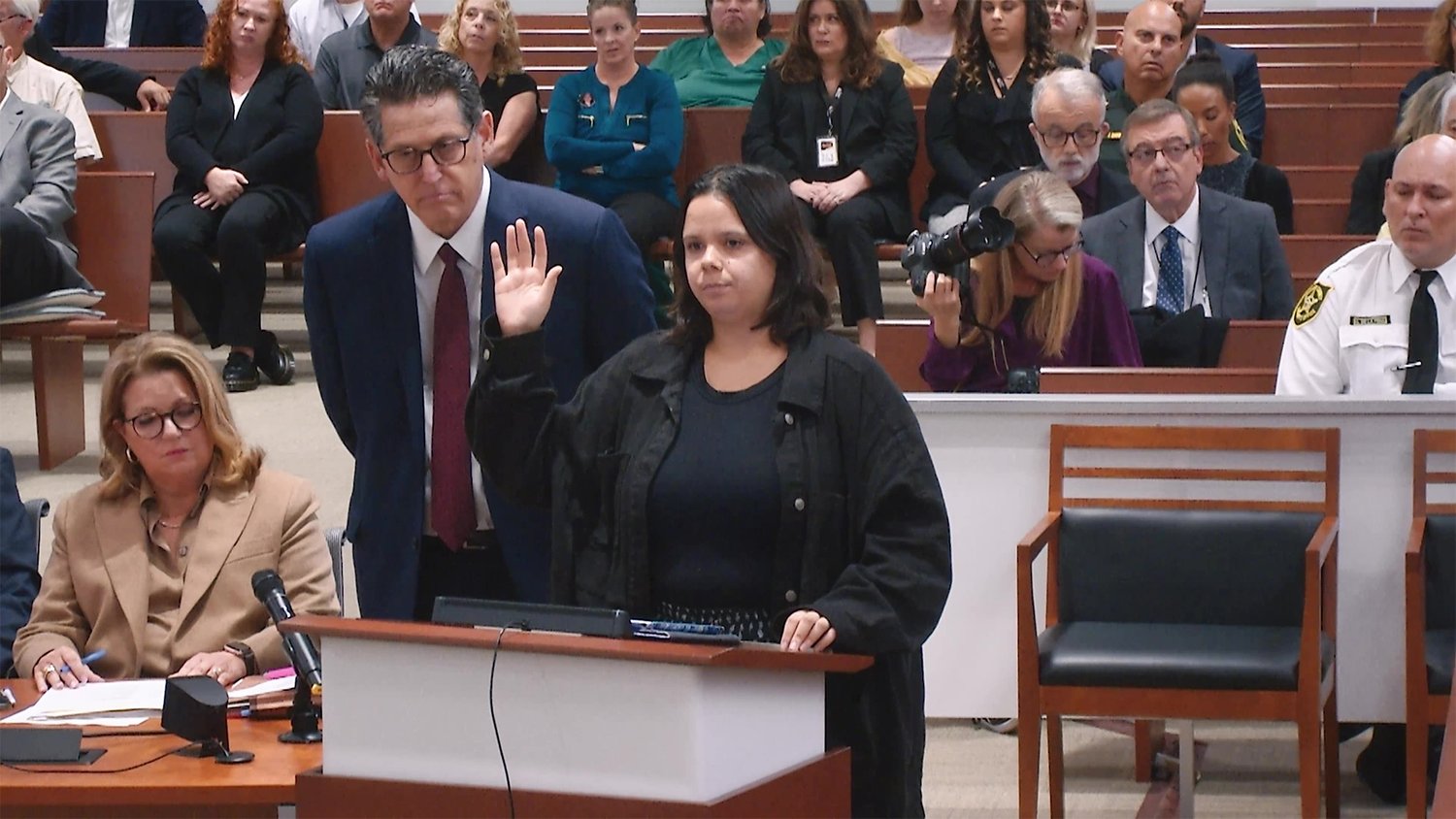2025 Oscar-Nominated Documentary Shorts

by James Rosario and Edwin Arnaudin
Edwin Arnaudin: Each February, I dread watching the Oscar-nominated documentary shorts. Similar to their feature-length counterparts, they often feature extremely difficult subject matter and at running times that stretch the definition of “short.” But after this year’s batch — composed of three gut-wrenching but rewarding films, one fluffy bio-doc, and a pleasant enough curio whose point escapes me — I’ll head into the 2026 program with a tad more confidence than usual.
Leading the charge is Incident, which chronicles the 2018 death of Chicago barber Harith “Snoop” Augustus through police body cams and surveillance footage. Director Bill Morrison frequently employs four-quadrant screens, making me feel like I had to be missing something important visually, but the onscreen text is fairly easy to follow and tells a clear story. Over the course of 30 riveting and terrifying minutes, Morrison shows how paranoid probationary cops are, the speed with which they can escalate a situation, how they falsely justify their actions, and the volume of fellow cops that their split-second decision affects.
This borderline overwhelming approach bracingly conveys the tension of an unwarranted police shooting and its aftermath, and I had to remind myself to breathe on multiple occasions. Obviously, police officers have been pulling dumb shit long before George Floyd’s 2020 murder, but seeing it laid out so thoroughly here hammers home the extreme need for police reform — including who’s allowed to wear a gun and badge.
The other nominees are worth discussing, but can we agree that the category’s next Academy Award winner has already been crowned?
James Rosario: I think it’s safe to say there is nothing in this group that could possibly beat it. As I mentioned in our discussion about the Live Action short A Lien, my notes consist of varying degrees of “fuck cops.” Incident is difficult to watch, but I believe everyone should watch it, all the same.
Forgive my rant, but I think whenever a cop shoots someone, every second of the footage should be broadcast for all to see. And they should be immediately fired and prosecuted if they turn off their body cams, too. A film of this power should be made EVERY SINGLE TIME police kill someone. What Incident portrays is not just a murder but a conspiracy to cover it up, all right before our eyes. It’s infuriating.
On another note, you may be able to guess my other favorite film. It might just be the dad in me but I couldn’t get enough of Instruments of a Beating Heart. This Japanese entry from director Ema Ryan Yamazaki about a first grader’s desperation to participate in her school’s orchestral performance of “Ode to Joy” and then her struggles with living up to the pressure pulled directly at my heartstrings. At one point in my notes, when her teacher was admonishing her for not knowing her part, I wrote “Leave her alone!” and swore to myself I would punch that guy in the face if he messed with her again.
It’s not particularly deep, and there’s no “message,” but the kids are so wonderful and supportive of one another that I can’t help but be moved by it. If there were an award for “cutest kids of they year,” we’d have a clear winner in Instruments of a Beating Heart.
With that aside, I have some issues with the remaining three films.

Edwin: I am merely a cat dad, so my reaction to Yamazaki’s film was more along the lines of, “Why the hell are we following around these adorable little Tokyo kids and why is that music teacher being such a hardass?” I’ll help you smackdown that instructor, but I’m at a bit of a loss what this film is doing being nominated.
However, I’m happy to see the category’s other pleasant, music-centric finalist, The Only Girl in the Orchestra. One of my favorite sub-subgenres is documentaries made by relatives of the subject (e.g. My Architect), and director Molly O’Brien’s fondness of her aunt Orin O’Brien gives a special shine to this look at the latter’s career as a double bassist. I’m also big on anything that conveys the power of following one’s dream, and with Orin still kicking ass in her 80s and not looking a day over 60, it’s clear that art can slow time. Her big, fun personality is a joy to experience, but she’s also clearly dealing with childhood wounds/trauma, which her niece conveys well enough.
But it sounds like it and the two remaining heavy-subject contenders didn’t quite do it for you?
James: When it comes to The Only Girl in the Orchestra, I’ll have to refer back to what we discussed in the Live-Action camp: proof of concept. Orin O’Brien seems like a wonderful person and I’d jump at the opportunity to learn more about her, but this “short” felt like a 35-minute trailer for the actual movie. For me it simply comes down to “I want to see more.”
However, my least favorite nominee is easily Smriti Mundhra’s I Am Ready, Warden. This story about a convicted killer, the victim’s son, the prosecutor in charge of the case, and a church lady jumped all over the place. I had trouble understanding who it was actually about and its vague “death penalty bad” message fell mostly flat.
Couple that with its bland and overused production style (follow someone from behind with deep focus and in slow motion as they walk and contemplate) and I lost almost all interest. Its only real power came in the moments when the victim’s son had trouble articulating his feelings. That’s the kind of documentary filmmaking I can get behind. More focus on emotion over aesthetics always helps.
Edwin: To be fair, its message is more like “Trying to convince people in Texas that ‘death penalty bad’” — which makes for a far more intriguing story.
I found the variety of figures circling death row inmate John Henry Ramirez as he and his attorneys attempt to get one more stay of execution a strength of the film as it showed the range of people impacted by a convicted murderer’s impending demise. I can take or leave the filmmaking style — the pattern you describe is most certainly there, yet it rarely bothered me — but I think you might be underestimating the power of the number of key emotional moments that Mundhra manages to capture, including those expressed by people close to Ramirez, such as his teenage son. These raw and unflinching bits of footage are chilling to witness unfold “live” and give the film a depth I wasn’t prepared for.
James: If the film had focused on the “two sons” angle, I think I could have gotten behind it with a lot more gusto. It’s not that Ramirez’s obvious sense of remorse lacks validity, it’s just that Mundhra really stumbled onto something extremely powerful with the contrasting emotional states of the sons but failed to capitalize on what could have been an even more gut-wrenching aspect of the story.

Edwin: Death By Numbers delivers a similar wallop. Based on the journals of Sam Fuentes, a survivor of the 2018 Marjory Stoneman Douglas High School shooting in Parkland, Fla., it’s essentially another death penalty story that feels very much in dialogue with Mundhra’s film.
Director Kim A. Snyder garners immense sympathy for Fuentes, rightfully depicting her as a battered but resilient hero, and makes zero effort to humanize gunman/classmate Nikolas Cruz in the film’s riveting courtroom scenes. With grieving parents and survivors out for blood, it’s fascinating to see their reactions when the sentencing is read. And though the situations are unique, with Cruz seemingly making no effort to atone beyond his guilty plea, I wanted to go up to the Parkland folks and say, “If you see I Am Ready, Warden, you might feel differently!”
James: Yeah, the revenge factor in the death penalty is something I’ve never understood. Of course, I’ve never been in that situation, but I can’t imagine that seeing someone ELSE die would bring any kind of real solace or closure.
As you noted, I Am Ready, Warden shows this “non-closure” in real time, but Death By Numbers packs a different kind of punch. It’s definitely effective at portraying the gunman as an inhuman monster, even X-ing out his face at several points throughout. Snyder’s choice to focus on the trauma still felt by the victims and their families rather than the specifics of the shooting or the shooter’s state of mind was a wise decision.
My complaints about it are mostly stylistic ones (similar to I Am Ready, Warden), but the emotional impacts hit where they need to. And it’s refreshing to see a documentary about violent crime that is truly about the victims rather than inadvertantly giving the perpetrator a platform.
Edwin: Unlike some of their fellow nominees, these two connected works feel like real, fleshed out films instead of mere sketches and help make this the surprise top program for me. I give this one a B-plus.
James: As a collection, Incident raises the bar significantly and makes up for some of the shortcomings of the other films. This one earns a B from me.
Originally published by ASHEVILLE MOVIES.
